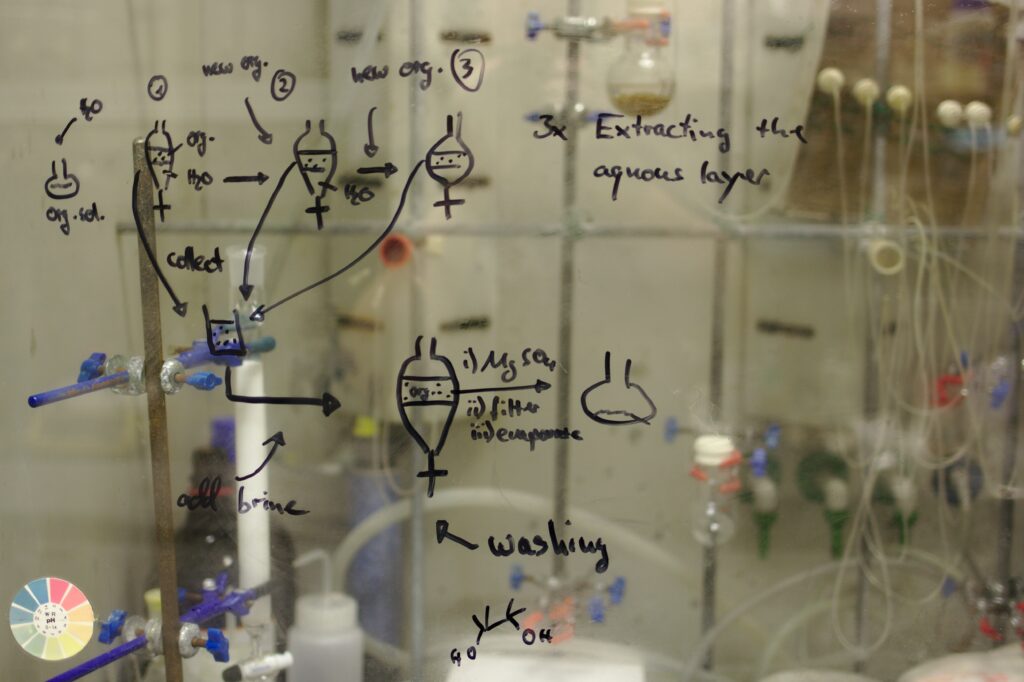“Lessons in Chemistry” is a book by Bonnie Garmus that blends humor, science, and feminism in a story set in the 1960s. The protagonist is Elizabeth Zott, a talented but frustrated chemist who finds herself relegated to the role of a glorified secretary in a male-dominated scientific community. The best part is that the book is accessible and makes complex scientific concepts understandable to a broader audience.

Elizabeth’s dream is to earn her Ph.D. and contribute to scientific research, but societal norms and gender biases of the time force her into a different path. Undeterred, she takes a job as a home economist on a cooking show, where she uses her scientific knowledge to demystify the chemistry of food. The book skilfully brings together Elizabeth’s professional struggles, her personal life, and her unconventional journey in a male-centric world. The book explores the challenges Elizabeth faces as a woman in science during the 1960s, dealing with patronising colleagues and navigating a world that expects her to conform to traditional gender roles. Despite all of these, Elizabeth’s determination and wit shine through. The book cleverly uses the cooking show as a metaphor for Elizabeth’s scientific prowess, demonstrating that even in the seemingly mundane, her intellect and passion for chemistry cannot be dimmed. As Elizabeth gains popularity on the cooking show, she becomes a symbol of breaking stereotypes and challenging societal expectations. The book addresses themes of feminism, equality, and the importance of pursuing one’s passion, regardless of societal norms.

Elizabeth’s personal life is also central to the story. The book skilfully balances the professional and personal aspects of Elizabeth’s life, portraying her as a multifaceted and relatable character. The author uses humour to highlight the absurdity of the gender biases Elizabeth faces. The comparison of serious issues with witty commentary creates a compelling narrative that fully engaged me through the book.
As the story unfolds, Elizabeth’s journey becomes a rallying cry for women’s empowerment. The book explores the sacrifices women make in the pursuit of their dreams, the compromises they are forced to accept, and the resilience required to challenge societal expectations.
Every line I read kept me hooked and was very relatable throughout. I could specifically think of instances from my own life when reading some of the things in the book. The few things that really boggled my mind while reading the book and what I will remember the book by are listed below:
- Gender Struggles in STEM: The book sure does exposes the gender struggles within the scientific community during the 1960s. Elizabeth Zott’s experience of being denied a Ph.D. and relegated to a non-research role due to her gender reflects the pervasive discrimination women faced in pursuing careers in science.
- The Power of Adaptation: Elizabeth, despite her initial disappointment at not pursuing traditional scientific research, adapts her skills to the unexpected platform of a cooking show. Her ability to apply her scientific knowledge to everyday scenarios showcases the resilience and versatility required to navigate a challenging professional landscape.
- Science in Everyday Life: Elizabeth’s role on the cooking show transforms seemingly mundane tasks into opportunities for scientific exploration. Her explanations of chemical reactions in cooking ingredients provide a tangible connection between scientific principles and the daily experiences of the audience, promoting a broader understanding of the relevance of science.
- Humour as a Coping Mechanism: Through the book humour is used as a coping mechanism in the face of societal challenges. Elizabeth’s witty and sarcastic remarks serve as a means of navigating through the gender biases and expectations placed upon her. The humour not only lightens the tone of the narrative but also highlights the absurdity of the situations Elizabeth finds herself in, offering a way to address serious issues with light-heartedness.
- Empowerment through Authenticity: Elizabeth’s refusal to comply to societal expectations and her determination to stay true to her passion for science become a source of inspiration. Her journey becomes a testament to the strength found in embracing one’s true self, encouraging readers to pursue their passions unapologetically, even in the face of societal norms. Elizabeth’s authenticity becomes a catalyst for positive change, both her and others, both personally and professionally.
On a whole, “Lessons in Chemistry” is a celebration of women’s strength, intelligence, and the capacity to overcome adversity. It serves as a reminder of the progress made in gender equality while highlighting the work that still needs to be done. Through Elizabeth’s story, the book encourages readers to question societal norms, challenge stereotypes, and pursue their passions regardless of the obstacles in their way. It is a thought-provoking and entertaining book that combines humour, science, and feminism. It tells the story of a woman’s journey to break free from societal constraints, pursue her dreams in the male-dominated world of science, and make a lasting impact on both the scientific community and the broader society.

